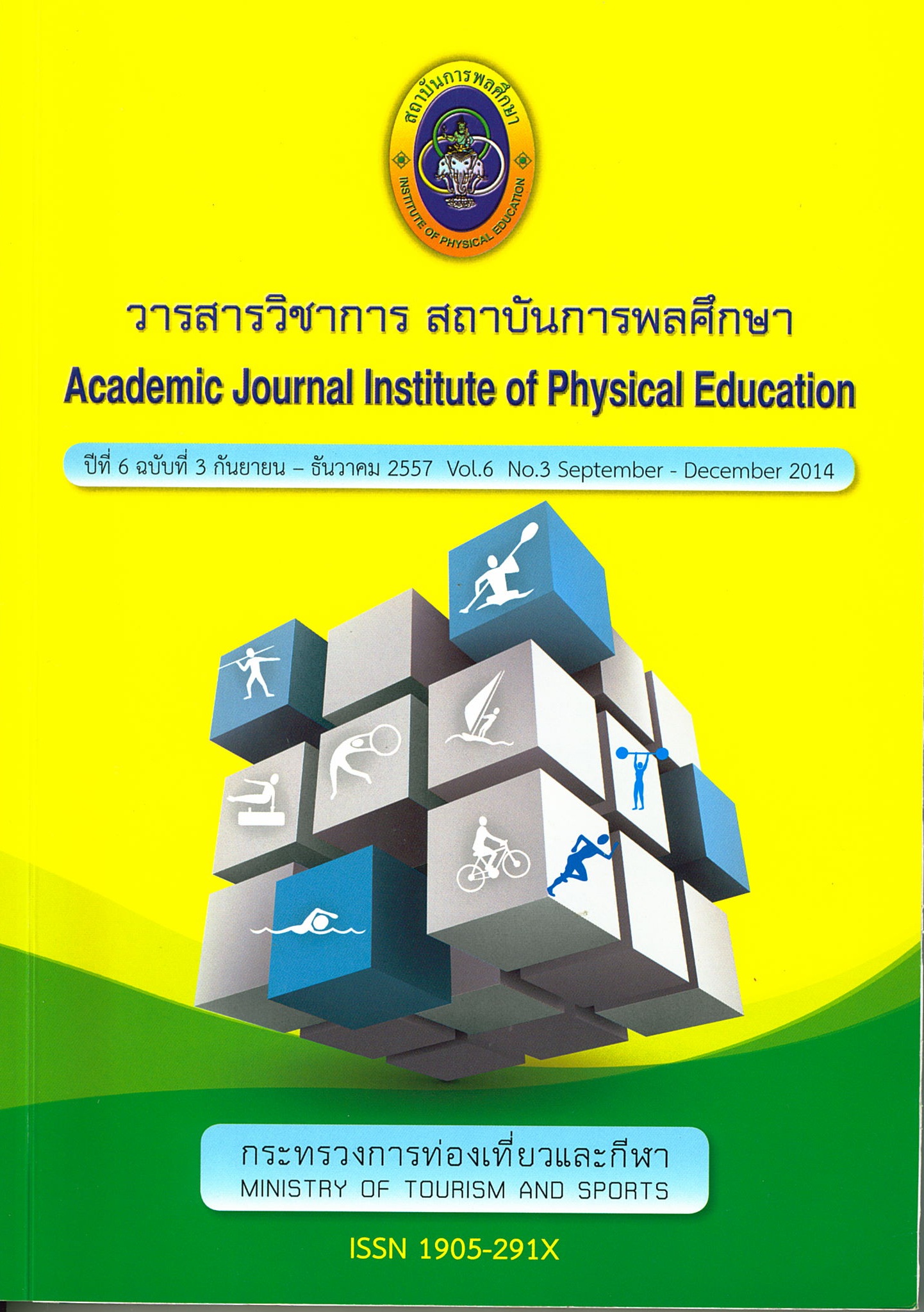การวิเคราะห์ปัจจัยที่ส่งwaiอความสําเร็จ ของการนํานโยบายสิ่งแวดล้อมไปปฏิบัติ : กรณีศึกษาองค์การบริหารส่วนตําบล (อบต.)
Main Article Content
Abstract
The objectives of this research are to 1) to quantify the level of the environmental policy implementation among TAOs, 2) to examine the major factors affecting the success on environmental policy implemented at the TAO level, and 3) to provide recommendations to permit more effective policy development on environmental issues and implementation processes by the TAOs. This study is a mixed-method research, in which the qualitative data that has been collected to corroborate and support the evidence with the quantitative data for the broad purposes of breadth and depth of understanding the rationale or theory underlying relationships of the variables. In data collecting, it consisted of the four-rating scale questionnaires, organizational records, and an in-depth interview, collected from the sampling groups representing TAOs, whose location situated within the districts of industrial zones from nine provinces in three regions; the central region, northeastern, and eastern parts of Thailand, with a returned rate of 69 per cent of 120 sets. In data processing, the quantitative analysis included descriptive statistics, analysis of variance, correlation analysis, factor analysis and multiple regression. Besides, a four-case study was used to investigate the potential factors contributing to the success of environmental policy implementation.
According to the results of this research, it identified that nine factors influenced on the success of environmental policy implementation of TAO, which comprised of 1) community acceptance, 2) public awareness, 3) participation, 4) organizational configuration, 5) partnership and networking with the private., 6) clients' needs, 7) feedback and evaluation, 8) communication, and 9) size of TAOS.
Finally, it is recommended that TAOs should be more dependent on other actors in the environment for obtaining resources, and more flexible to external actors (Acs, et al. 1994: 336-340), in term of inter-organizational co-operations and networks from the stakeholders' participation in codifying policies and using the collaboration of organized groups in the communities to benefit an environmental policy implementation. Besides, TAOs should grant more importance on the man-power management to recruit an expertise in environment for more efficiency in coping with the problems. Aside from that, TAOs should be sufficiently equipped with favorable scope of jurisdictive power for punishment for violations so that they can deliver and make the policy to be more of a success.
Article Details

This work is licensed under a Creative Commons Attribution-NonCommercial-NoDerivatives 4.0 International License.
The published article is a copyright of the Academic Journal of Thailand National Sports University. The passage appeared in each article in this academic journal is a perspective of each author which is not related to the journal. Each author is required to be responsible for all components of his/her own article. If there are any mistakes, each author must be responsible for those mistakes on his/her own.
References
กล้า ทองขาว. (2534), การวิเคราะห์ปัจจัยที่ส่งผลต่อความสําเร็จของการนํา นโยบายสาธารณะไปปฏิบัติกรณีศึกษานโยบายรณรงค์เพื่อการรู้ หนังสือแห่งชาติ, วิทยานิพนธ์พัฒน บริหารศาสตรดุษฎีบัณฑิต (การบริหารการพัฒนา), กรุงเทพ: คณะรัฐประศาสนศาสตร์สถาบัน บัณฑิตพัฒนบริหารศาสตร์, 68-75.
รุ่งทิพย์ ผูกเกษร ผู้อํานวยการกองสาธารณสุขและสิ่งแวดล้อม องค์การบริหารส่วนตําบลหนองปรือ จังหวัดสมุทรปราการ. สัมภาษณ์ 17 มกราคม 2557.
วิชิต อู่อ้น, 2550. การวิจัยและการสืบค้น ข้อมูลทางธุรกิจ.กรุงเทพฯ: มหาวิทยาลัยศรีปทุม, 121.
สมชาย วรกิจเกษม. (2554), ระเบียบวิจัยทาง พฤติกรรมศาสตร์และสังคมศาสตร์, อุดรธานี: มหาวิทยาลัยราชภัฏอุดรธานี, 164-165.
Acs, Z.J., Audretsch, D.B., & Feldman, M.P. (1994). R & D Spillovers and Recipient Firm Size. Review of Economics and Statistics, 76(2), 336-340.
Creswel, J.W. (1998). Qualitative Inquiry and Research Design: Choosing Among Five Ttraditions. Thousand Oaks, California: SAGE, 45-50.

